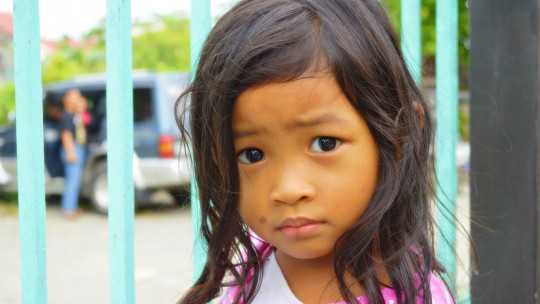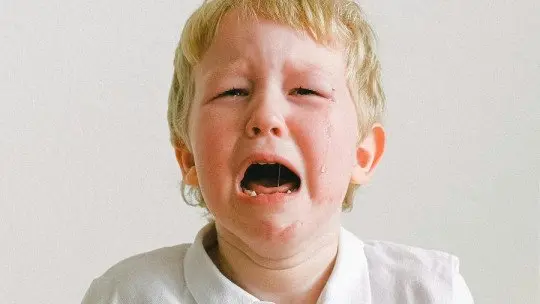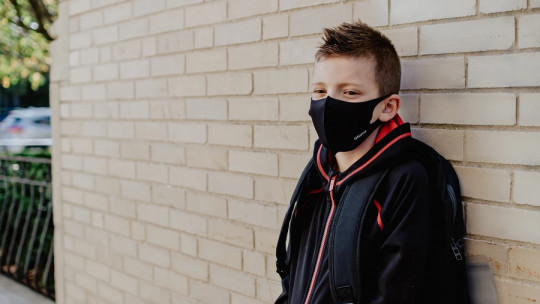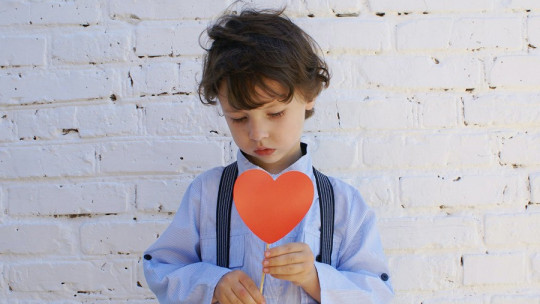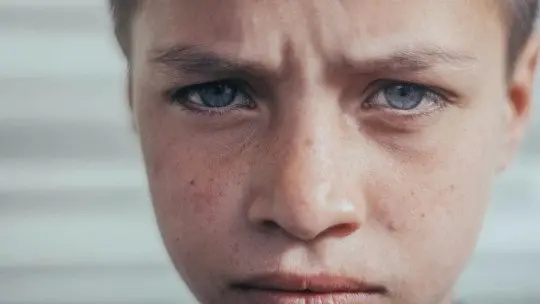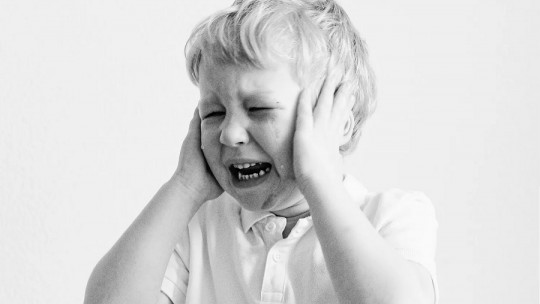
We have all heard at some point that: “A spanking in time takes away a lot of nonsense.” Nothing is further from reality.
The psychological effects of spanking There are many and of such great importance that this matter should not be taken lightly. With this article we will be able to see the details of some of the repercussions that carrying out this type of behavior can have.
What are the psychological effects of spanking children?
When talking about the psychological effects of spanking, many people enter into a kind of debate about the pros and cons of using these sanctioning measures in the educational process of their children. However, there is no such debate. The question is very simple: Neither whipping nor any other form of physical punishment is in any way justified, in any case
Starting from this premise we can begin to analyze what the different psychological effects of spanking consist of, knowing in advance that they will be negative. Some people might think that the method, although controversial, works, since the child stops the unwanted behavior when faced with this punishment, but this is a false effectiveness, since the effects have very little effect.
But furthermore, even if this effectiveness were greater (which it is not), it would still not be a reason for debate, since it cannot serve as an excuse to carry out a practice that is neither legal nor ethical and also generates a series of important consequences. In that sense, the discussion no longer has any further progress.
The psychological effects of spanking can originate through different processes. In the following points we will be able to learn about some of the most important ones, which will help us to be more aware of the importance of avoid at all costs these forms of punishment in the education of children whatever the context in which it is taking place.
The justification of violence
The first question we can ask ourselves is the example that as parents we are giving to our children Regardless of what we try to instill in them with our words, if we choose to reprimand some of their attitudes through a slap or another type of verbal punishment, the underlying message will be clear: violence is justified in some cases.
This statement may be shocking, but the reality is that in Many times we underestimate the power of learning that occurs in children through example and much more if it comes from their highest reference figures, such as their parents or guardians. Therefore, if we settle a conflict by spanking, it is likely that the little one will decide to end his next argument with his schoolmates by pushing him.
One of the best-known psychological experiments is that of the so-called Bobo doll, carried out by psychologist Albert Bandura. This study, carried out at Stanford University, put a group of children in a situation in which they watched an adult hit a doll and then leave the room. Another group of children did not observe this aggressive behavior.
The results were clear: the members of the group who had observed the violent behavior were much more likely to imitate these behaviors, also hitting the Bobo doll just as they had seen the adult researcher doing moments ago. Therefore we can get an idea of the danger posed by the normalization of violence within the psychological effects of spanking children.
The attachment figure
We were talking about the influence of reference figures on children. And parents are not a mere reference for the little ones, but they also represent attachment figures, that is, They are the people with whom they establish the bond of attachment, so they will tend to seek their company and will feel anxious when they leave. But this relationship goes beyond physical proximity, but has the same or more importance in the emotional field.
The attachment figure will transmit the security that the child needs when he perceives that he is close to a potential threat. But what happens when precisely that threat comes from the same people who are supposed to represent her security and does so in the form of a slap in the face? We would be facing another psychological effect of punishing with spanking, since this behavior would generate dissonance in the child.
This inconsistency is given by the situation of having received physical punishment from their own parents, the figures who will always represent emotional protection that the child needs. When faced with this contradiction, the child could develop a disorganized or insecure attachment, depending on how frequent these situations are and their context.
The child would be confused by the possibility that his main source of security sometimes also becomes a threat. In addition, it could also affect his self-esteem and his self-concept, potentially generating thoughts like: “He hits me because I’m bad, I deserve it.”
Its correlation with mental disorders
A study from the University of Manitoba that analyzed more than 34,000 cases in the American adult population revealed an intriguing correlation: there were significantly more cases of mental disorder in some of its forms in those people who during their childhood were punished by slapping on a regular basis. It would, therefore, be one of the psychological effects of spanking to take into account.
Some of the mental illnesses that were most frequently observed in the population studied were depression, anxiety, substance abuse such as drugs or alcohol, or personality disorders. And not only that. In complementary studies from the same university they also discovered that this correlation was also observed between spanking and lower development of IQ and even with antisocial traits and aggressiveness.
A causality cannot be established between having received spankings during childhood and having developed this series of problems in adult life, but there is a correlation, which is reason enough to focus on this issue and investigate what Another cause or set of causes, such as a particular parenting style, may be causing these difficulties to arise.
In conjunction with the points we have seen above, it would seem that physical punishments and what they entail could be risk factors that would facilitate the future appearance of psychological diseases and/or aggressive attitudes and could also hinder correct cognitive development. On the other hand, an assertive parenting style that promotes secure attachment would be a protective factor and therefore would have the opposite effect.
Meta-analysis conclusions
In 2016, the University of Texas published a meta-analysis to study the psychological effects of spanking in a cumulative sample of more than 160,000 children. After an extensive analysis of this enormous amount of data, the authors concluded that, indeed, These corrective measures in education have negative consequences for children However, they suggest that these effects are less intense than we might think.
It is important to distinguish between punishment through spanking and other physically aggressive behaviors that may even involve the use of objects or beatings. It is evident that the second case has other, much more serious connotations and therefore these cases escape the behavior that we are analyzing here and to which the authors of the meta-analysis refer. In any case, as we already saw at the beginning of the article, the slaps are not justified in any way.
What became clear to the researchers is that there was an association between spanking parenting and subsequent negative psychosocial effects in children But in addition to these unfortunate consequences, they also verified that on a practical level it was not an effective behavior to prevent the child from extinguishing the behavior that the parents had tried to stop by slapping.
The conclusion is clear: spanking is not useful to prevent unwanted behavior in children and also has negative psychological effects, so this behavior should never, in any situation, be resorted to.

